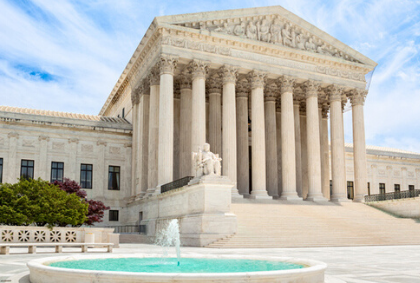The U.S. Supreme Court today ruled Montana may not bar religious schools from participating in the state’s tax-credit scholarship program.
The 5-4 decision in Espinoza v. Montana is a major win for school choice advocates. It is also a blow to so-called “Blaine Amendments” that have discriminated against parents who want to use popular and widespread education choice programs to send their children to religious schools.
“A State need not subsidize private education,” wrote Chief Justice John Roberts for the majority. “But once a State decides to do so, it cannot disqualify some private schools solely because they are religious.”
Heartland Institute Policy Analyst Tim Benson lauded the decision.
“The U.S. Supreme Court provided a big win today for those who believe in equality under the law and who are opposed to government discrimination of religious schools,” said Benson, coauthor of The Heartland Institute’s Policy Brief titled Child Safety Accounts: Protecting Our Children through Parental Freedom. “However, the biggest winners of all are the students and families of Montana who will now have increased access to the education of their choice.
“Justice Roberts is correct when he declares in his majority opinion that Montana’s Blaine Amendment was ‘born in bigotry’ and that those found in other states share a ‘shameful pedigree,’ Benson said. “The country will be much better off when the other 37 states unceremoniously drop their Blaine Amendments into history’s dustbin, where they rightfully belong.”
Heartland Institute Senior Fellow and Director of Publications S. T. Karnick says the concurring opinions to the decision indicate some of the Justices want to go farther in protecting religious freedom.
“The Court’s decision essentially to invalidate Montana’s Blaine Amendment is the right choice,” Karnick said. “The majority opinion written by Justice Roberts relies strongly on precedent, as is his habit. The concurring opinions, however, make important points that we should hope the Court will consider in future cases.”
The concurring Justices found several shortcomings in the Court’s current thoughts on religious freedom, Karnick says.
“Specifically, Justice Thomas points out that the Court’s expansive interpretation of the Establishment Clause is responsible for much of its bad jurisprudence restricting the free exercise of religion,” Karnick said. “Thomas rightly calls for the Court to reject this interpretation because it is a ‘content-based restriction on the government’ that violates the Free Speech Clause and thus ‘has the effect of tilting society in favor of devaluing religion.’
“Justice Alito extensively documents the ugly history of religious prejudice behind Blaine Amendments and the Montana Supreme Court’s decision to invalidate the school choice program in question,” Karnick said. “Justice Gorsuch makes the important point that the Court’s untenable distinction between religious status and religious activity undermines the Free Exercise Clause and is unconstitutional.”
Whether the Justices will move further in the direction of today’s landmark decision depends on the future composition of the Court.
“It is evident that Roberts’ excessive devotion to precedent will probably thwart further attempts by these Justices to reform the Court’s constitutional jurisprudence regarding government and religion—unless and until additional like-minded Justices are appointed to the Court,” Karnick said.







